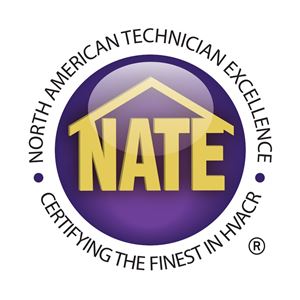History
In the 1990s, many industry leaders in the heating and air conditioning field noticed a problem. Equipment manufacturers were producing more advanced machines, but clients were frequently dissatisfied with them. Companies were spending more resources on customer service, recurring callbacks and handling costly returns. Manufacturers and contractors realized the technicians working on these systems often didn’t have the necessary education or training to service them properly. To address this problem, the Air-Conditioning, Heating & Refrigeration Institute (AHRI) and the Gas Appliance Manufacturers Association (GAMA) formed North American Technician Excellence (NATE), a nonprofit certification program for technicians working in heating, ventilation, air conditioning and refrigeration (HVACR).
Testing
This Virginia-based nonprofit differentiates itself from other trade organizations through its strong emphasis on testing. Certificate holders must demonstrate real-world industry knowledge in “topics pertinent to contractors, educators, manufacturers and utilities alike.” Industry experts from across the United States develop the tests, which cover topics as varied as air distribution, oil heating and commercial refrigeration service. Today, there are more than 32,000 NATE Certified technicians across North America, and Texas and New Hampshire require this certification as part of their licensing process.
Setting the standard
NATE’s unique certification process accomplishes three goals. First, the tests establish a strong knowledge base among technicians and set a high baseline for industry standards. Second, with certification, technicians can provide a higher level of service to customers, meaning less time spent on repairing faulty work. Lastly, when HVCAR equipment is properly installed, it runs more efficiently and saves consumers money. Tests are open to all, but the organization recommends at least one year of training or completion of a vocational program. Certification lasts from two to three years, depending on the specialty.
Future influence
Going forward, NATE aims to make its certification process a requirement for all technicians working in the HVCAR industry. The role of certification will become more important as equipment becomes increasingly advanced and the number of jobs in the field grows. A recent survey of HVCAR employers reported that a majority found it difficult to hire entry-level technicians with the skills required. NATE plans to fill this education gap through its mission.

